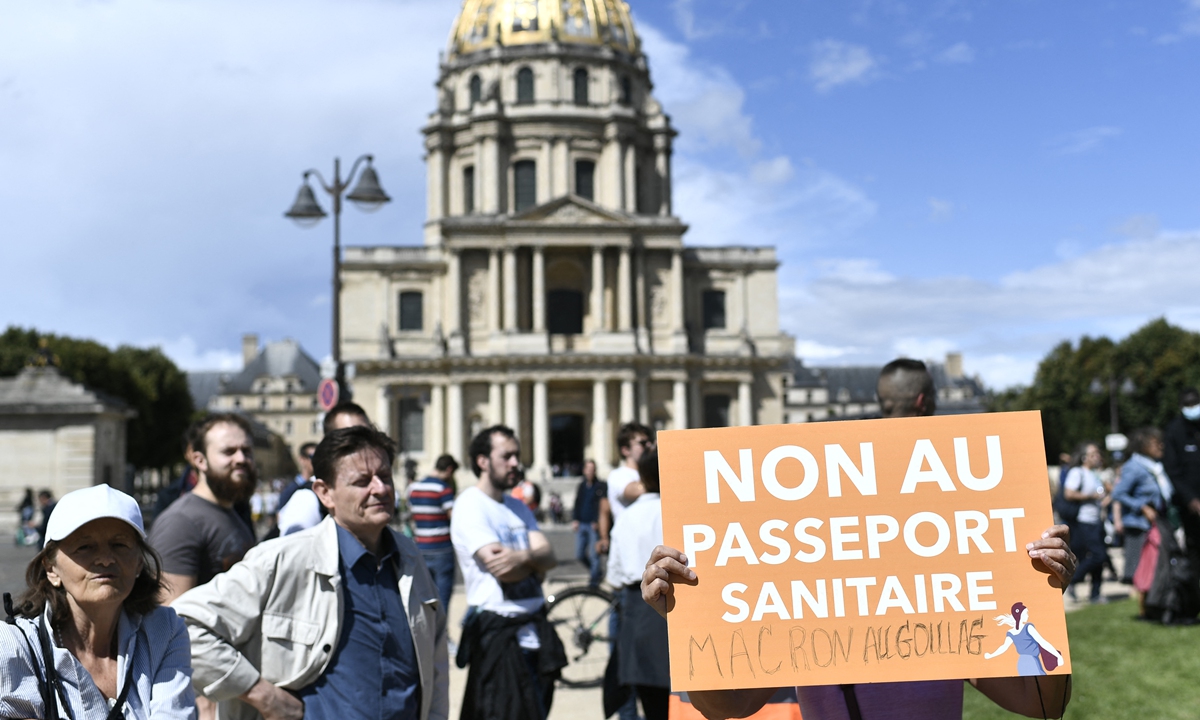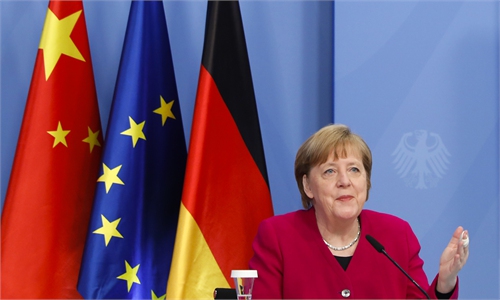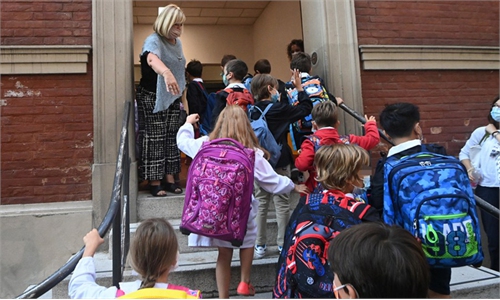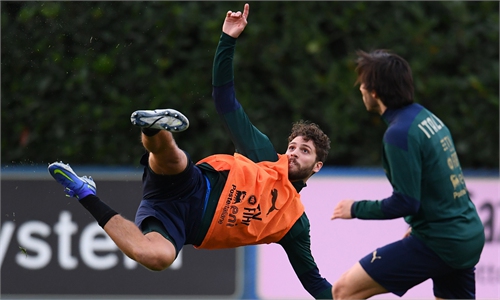Tens of thousands protest curbs
Anger mounts in Europe over fresh COVID-19 restrictions

A protester holds a sign reading "No to the health pass - Macron to the Gulag" during a demonstration against the mandatory COVID-19 health pass to access most of the public space, in Paris on Saturday. Photo: AFP
Tens of thousands took to the streets in cities across Europe Saturday as anger mounted over fresh COVID-19 restrictions imposed against a resurgent pandemic.And Dutch police faced a second night of rioting after the previous night's violence in the port city of Rotterdam.
Clashes erupted after a day of mainly peaceful protests elsewhere in the Netherlands, with rioters throwing stones and fireworks at police and setting fire to bicycles. Several people were arrested.
Europe is battling a fresh wave of infections and several countries have tightened curbs, with Austria on Friday announcing a nationwide partial lockdown - the most dramatic restrictions in Western Europe for months.
The Netherlands went back into partial lockdown on November 13 with at least three weeks of curbs, and is now planning to ban unvaccinated people from entering some venues, the so-called 2G option.
Several thousand protesters angry at the latest measures gathered in Amsterdam. Another thousand marched through the southern city of Breda near the Belgian border, carrying banners with slogans such as "No Lockdown."
Organizers said they opposed Prime Minister Mark Rutte's plans to exclude the unvaccinated from bars and restaurants.
"People want to live, that's why we're here," said organizer Joost Eras.
But "we're not rioters. We come in peace," he said, distancing himself from the chaos the previous night in Rotterdam, in which police said they had fired both warning and targeted shots and used water cannon.
In Austria, around 40,000 came out to protest in central Vienna near the Chancellery, responding to a call from the far-right FPO party.
They held up banners decrying "Corona dictatorship" and slamming the "division of society."
"It's not normal that the government deprives us of our rights," said 42-year-old teacher Katarina Gierscher, who traveled for six hours to attend the rally.
From Monday, 8.9 million Austrians are expected not to be allowed to leave home except to go to work, shop for essentials and exercise. The restrictions will initially last 20 days with an evaluation after 10 days.
Thousands also marched in Croatia's capital Zagreb and in Denmark, around 1,000 people protested against government plans to reinstate a COVID-19 pass for civil servants going to work.
AFP



